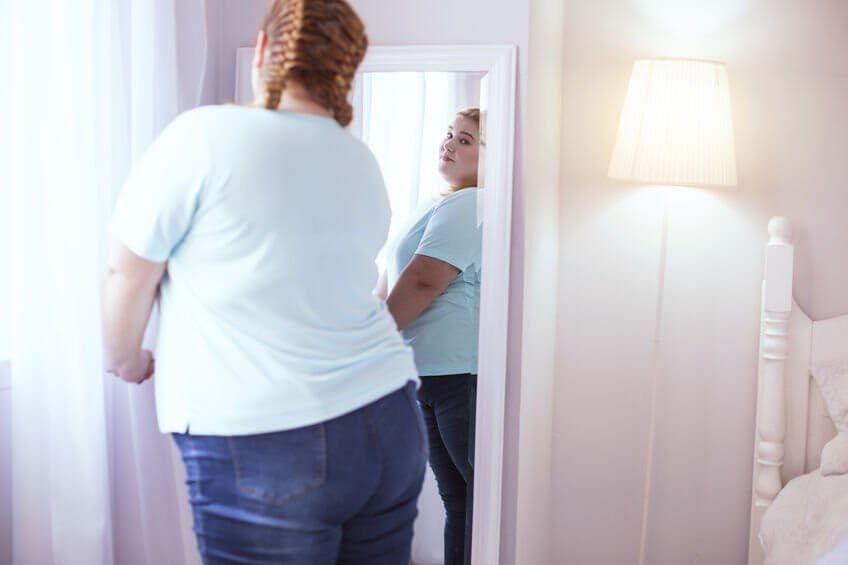
Whether men find skinnier or curvier body types more attractive is a frequently asked question. Are there any men who find obese women attractive? Or do they prefer the thinner ladies? Embark on a journey through history, evolutionary psychology, and cultural dynamics to uncover the truth behind today’s men’s preferences.
Although our perception of beauty greatly depends on our personal preferences, evolutionary psychology, and cultural influence, men can certainly be attracted to fat women. These factors contribute to our perception of attractiveness and can shape our preferences.
Evolutionary psychology suggests that men often prefer women who are neither too thin nor too fat but rather in the middle of the scale, as this indicates a healthy lifestyle and fertility. From a cultural angle, the concept of an ideal woman constantly shifted to fit the norms of society.
In some instances, fat women were considered to be the ideal as they represented wealth and comfort, and other times, underweight women were in the spotlight for their toned look. Despite these factors, individual tastes can, in fact, vary.
Evolutionary psychology proposes that men tend to be attracted to women who exhibit signs of health and fertility. Regarding body weight, it simply means that a middle ground is preferable, not the two extremes, as from an evolutionary point of view, men seek a mate that is capable of reproducing and can ensure the survival of the offspring.
It also suggests that certain body types are considered more attractive, like the hourglass figure, as it indicates sexual maturity. The priority is the woman’s youth and health. Most men are attracted to those women who are neither too slim nor too fat. Another tempting attribute is facial symmetry.
Your culture, country, or even region can be a significant factor that determines one’s idea of true beauty. Ideals of attractiveness are linked to the societal values of the region. Because of this, beauty standards can differ in Europe, Asia, America, or other continents.
The idealization of women has constantly changed throughout history as peoples’ norms and expectations shifted as well. Even different nations can have their own idealization of beauty, e.g., in Brazil, beautiful skin is considered an ideal, while in some Asian countries, fairness is preferred. In Africa, a larger figure might be perceived as the ideal of beauty, just like it was in Europe in more ancient times.
The ideal body type and woman changed tremendously in historical times, too. One of the first symbols that reflected the ideal body shape of a woman was the Venus of Willendorf, which was crafted over 2000 years ago. As the model had no face, the sculpture’s main focus was the body, which most likely refers to the capability of a woman to bear and defend a child, as back then, being strong was essential and a means of survival.
In ancient Greece, fuller figures were considered the epitome of beauty. According to Hesiod, a woman was viewed as “the beautiful evil thing.” The ideal woman of the era had a flat stomach, ample breasts, and large hips. However, to fulfill all expectations, a woman of that era needed to have a perfectly proportionate face, often called the golden ratio.
In the Renaissance, women with curvier figures were still considered to be the most appealing to men. However, the era of the golden ratio has finally come to an end, and round cheeks came into the spotlight.
In the 1700s, the ideal of women shifted, and big bottoms alongside tiny waists were preferred. They even installed structures under their dresses to achieve that shape. The higher your social status, the thinner your waist had to be.
At the beginning of the 20th century, women used corsets to look thinner and have the illusion of a smaller waist. Ideally, their hips were broader than their shoulder line. Later, big breasts became the ideal.
In the 1900s women finally gave up their corsets and embraced a more active lifestyle, therefore, a leaner and more athletic body type became the coveted ideal. However, following the war, women wanted to enhance their feminine features again, and many followed the more traditional gender roles.
The ideals described above, show most men’s preferences throughout history, however, these can widely vary individually. Most people are likely to have some sort of preference when it comes to the looks of the opposite gender. This personal taste depends on the individual’s upbringing, as well as personal experiences.
Yes, men can love fat women. Some men can be romantically attracted to a woman due to her obesity. In fact, According to research by Elyse Neumann, there is a certain group of people who self-identify as “Fat Admirers” who battle the Western ideals of beauty and prefer curvier women This community has established their way of thinking and explained:
“The preferences of fat admirers (FAs) themselves can be wide-ranging, and the targets of those preferences can range from being slightly overweight to morbidly obese. Even so, a consistent thread among FAs appears to be their rejection of the thin ideal as an unnecessarily prescriptive societal construct” (Swami and Tovée 2009:89).
Of course, a man doesn’t need to be a part of this community to be attracted to heavier women. Women of all sizes and forms can be beautiful, as seen in professional shootings and even on the runway.
Being big and being attractive certainly doesn’t preclude each other. Beauty is not exclusively based on the shape or weight of the body. Similar to ancient Greece, contemporary society appreciates symmetrical and aesthetically appealing facial features.
However, beauty extends beyond size and facial symmetry. It encompasses confidence and a multitude of qualities that radiate one’s personality. What is certain is that as the concept of an ideal woman has been constantly changing throughout history, it undoubtedly continues to evolve.

 Get Started
Get Started